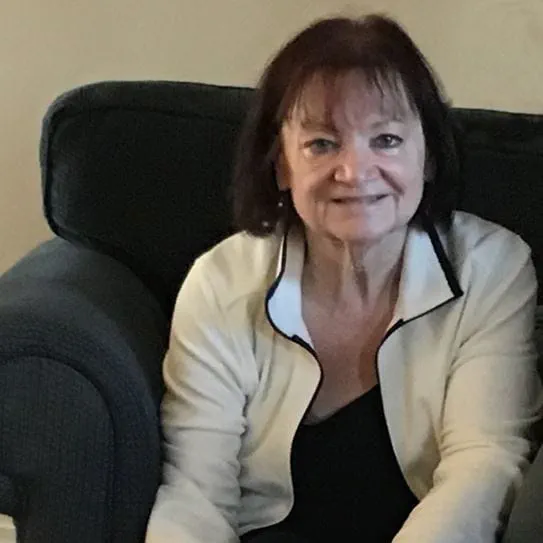
The Canadian Cancer Society (CCS) has long advocated for better access to affordable, culturally safe, high-quality palliative care regardless of where someone lives or chooses to receive care. But what is palliative care exactly? We sat down with Sharon Baxter, Former Executive Director of the Canadian Hospice Palliative Care Association and consultant with CCS’s new Don Green Palliative Care Advocacy team, to learn more.
Q. What is palliative care?
Palliative care is an approach that improves the quality of life of patients with a life-limiting illness and their loved ones. It helps prevent and relieve suffering through the early identification, correct assessment and treatment of pain and other problems, whether physical, psychosocial or spiritual.
While palliative care is often thought of as an option that is only available for people once curative treatment is no longer an option, palliative care can and should be delivered throughout the cancer journey. It offers a support system to help people live as actively as possible throughout their illness and into survivorship or end-of-life care.
Q. Where do people receive palliative care services?
Palliative care can be received at home, in hospice residences, in long-term care, or in an acute care setting like hospitals, depending on the availability of the services in your area. People can sometimes receive hospice palliative care in shelters or prisons.
Q. What kind of support is offered through palliative care?
Palliative care services include pain and symptom management, social, psychological, emotional, and spiritual support, and caregiver supports. Through these services, support involves having access to healthcare providers who can help to provide instructions on how to treat and care for their loved ones and advance care planning. Advance care planning helps people make decisions about what the future of their care looks like as their condition progresses. Palliative care also includes grief and bereavement services for people who are sick and their loved ones before and after they die.
Q. Does receiving palliative care mean that you are dying or giving up?
Not at all - palliative care can and should be delivered throughout the cancer journey, and not just when curative treatment is no longer an option. Palliative care has been shown to be particularly effective when delivered early, before the last stages of life, because it improves the quality of life and satisfaction with care for people with cancer and their caregivers, reduces the need to use hospital emergency departments, and increases the likelihood people will be able to receive care in the setting of their choice for longer.
Q. Can I still pursue active treatments like chemotherapy if I am receiving palliative care?
Yes. Many people receiving active treatment like chemotherapy can benefit from pain and symptom management, skilled psychosocial, emotional, and spiritual support, and comfortable living conditions in the setting of their choice. The goal of palliative care is to provide practical supports to improve the quality of life of people receiving it and is a valuable component of cancer care.
Find out more about CCS’s advocacy work on palliative care or to learn more about palliative care at cancer.ca.
Help create a future without cancer
With support from readers like you, we can continue to make a meaningful impact for people affected by cancer.
We are determined to increase survival, stop cancer before it starts, and improve lives. But we can’t do it without you.
If everyone reading this gave just $5, we could achieve our goal this month to fund the most promising research, compassionate support and transformative advocacy. Please give today because every contribution counts. Thank you.
